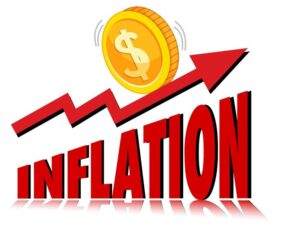Nigeria’s economic decline throughout the years is a crucial issue that cannot be ignored any longer, particularly in current times. One of the main factors at play in this situation is the nation’s substantial reliance on oil revenue, which makes it susceptible to changes in the price of crude throughout the world. To remedy these drawbacks, Nigeria must diversify its economy, enhance its governance, encourage environmentally friendly practices, and invest in other industries including agriculture, manufacturing, technology, tourism, and real estate.
Real estate can have a big impact on Nigeria’s urbanization and economic development. It is a sector that has the potential to lead to some advantageous developments, particularly following an inflationary or depressed economic period. In Nigeria as well as many other nations, real estate is frequently viewed as the most advantageous long-term investment during inflationary times.
The government should give top priority to policies that support sustainable urban growth, make it easier for developers and homebuyers to get financing, and enhance the ease of doing business in the real estate sector if it wants to fully realize real estate’s promise as a tool for Nigeria’s economic recovery.
The potential rewards of investing in real estate in the nation are influenced by several factors:
- Gross Domestic Product (GDP) contribution: The real estate industry makes a considerable contribution to Nigeria’s GDP. It includes residential, commercial, and industrial assets as well as construction work and related services. As such, every expansion or improvement in this industry has a direct effect on the nation’s overall GDP growth.

2. Urbanization and Housing Demand: People travel to cities in quest of better opportunities, which fuels real estate growth. Better transportation systems, including public transit, highways, and bridges, are required as metropolitan areas grow. The government frequently spends money on enhancing transport infrastructure as a result of real estate initiatives to support the expanding population.

3. Hedge against inflation and Capital Appreciation: Real estate has typically been viewed as a relatively stable asset type with the potential for long-term growth. Renter’s income and capital growth are advantages for investors that can help them build wealth over time.

4. Tourism and Hospitality: The expansion of the Nigerian tourism industry is aided by real estate development in these fields. Included in this is the building of hotels, resorts, and recreational facilities, all of which not only generate employment but also encourage the development of local infrastructure (such as utilities and transportation) to meet the demands of visitors.

5. Population Expansion and Housing Market Stabilization: Urbanization has raised demand for residential and commercial real estate in Nigeria, which has seen significant population expansion. Real estate is a potentially profitable investment because of the potential for this demand to boost property values and rental income.

6. Improved Mortgage and Finance Industry: The real estate industry may help Nigeria’s financial stability by providing mortgage loans, home financing, real estate investment trusts (REITs), and other financial instruments that allow individuals and institutions to participate in real estate.

7. Commercial and Industrial Development: Real estate development also concentrates on commercial and industrial properties, such as office buildings, shopping centres, and factories. As a result of these advances, the economy expands and job possibilities are created.

8. Foreign Direct Investment (FDI): A dependable and flourishing real estate industry draws overseas investors hoping to profit from the expanding real estate market. The real estate sector and related industries are further boosted by foreign direct investment, which brings capital into the nation, promotes economic expansion, and makes it easier to transfer technologies.

9. Government Revenue Generation: Property-related taxes and real estate transactions both help the government generate revenue. Tax revenue from real estate transactions and related activities rises as the real estate sector expands, funding public services and infrastructure.

